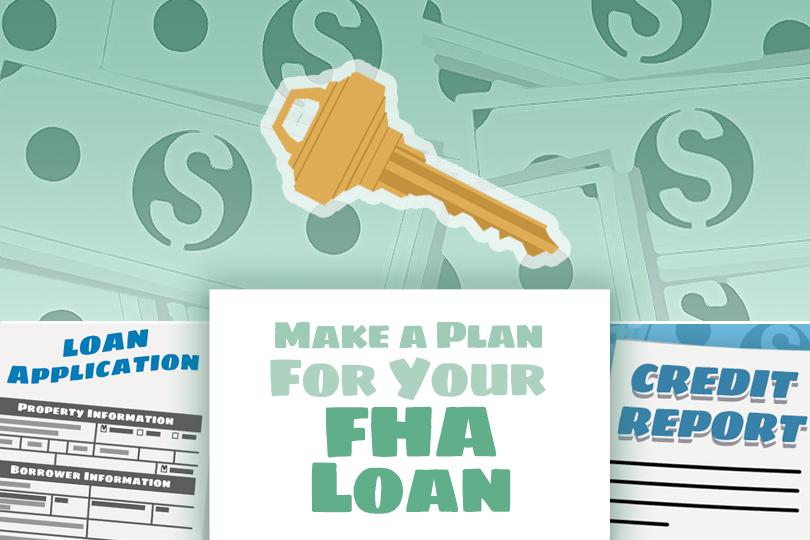Which Insurance Do You Need When Buying A Home?
February 18, 2025
Key Differences
Homeowner's Insurance: Protects against property damage, liability, and loss of use. For the borrower.
- Required by most lenders regardless of loan type.
- Premiums are paid annually.
- Renewable annually.
- Required for FHA loans with low down payments.
- Premiums are paid upfront and annually.
- May be cancellable after a certain period, depending on loan terms.
Homeowner's insurance is a policy that protects physical property and provides liability coverage. It is for the borrower, protecting your investment.
A standard homeowner's insurance policy typically covers the following:
- Dwelling: This covers the physical structure of your home and may include attached structures like a garage or deck. If your home is damaged or destroyed by a covered peril, the insurance will help cover the costs of rebuilding or repairing it.
- Personal Property: This covers your belongings inside the home, such as furniture, appliances, clothing, and electronics. Coverage extends to damage or loss from covered perils, even if the items are outside the home. Some policies may offer replacement cost coverage, which pays the current cost of replacing the item, while others offer actual cash value, which factors in depreciation.
- Other Structures: This is for detached structures on your property, such as sheds, fences, detached garages, etc..
- Loss of Use: If your home becomes uninhabitable because of a problem covered in your policy, this coverage may help with additional living expenses, including temporary housing, meals, and other related costs, while your home is being repaired or rebuilt.
- Liability Protection: This covers you if you're held responsible for someone's injury or property damage on your property. For example, if someone slips and falls on your icy sidewalk, this coverage can help pay for medical bills and legal expenses.
- Medical Payments: This covers medical expenses for guests injured on your property, regardless of who is at fault. It's often referred to as "guest medical" coverage.
While comprehensive, homeowner's insurance policies typically exclude certain events and damages, including:
- Earthquakes and Floods: These natural disasters usually require separate insurance policies or clauses.
- Wear and Tear: Gradual deterioration of your property due to age or neglect is not covered.
- Pest Infestations: Damage caused by termites, rodents, or other pests is generally not covered.
- Intentional Acts: Damage caused intentionally by the homeowner is excluded.
When applying for an FHA loan, you must demonstrate proof of adequate homeowner's insurance. Lenders typically require coverage that meets or exceeds the loan amount.
Mortgage insurance is a type of insurance that protects the lender. It is not meant to protect the FHA borrower. Lenders use this insurance to protect them in case of loan default. Typical FHA loan transactions will require mortgage insurance.
Homeowner's insurance protects you, but FHA mortgage insurance mitigates the lender's risk associated with lending to borrowers with lower equity in the property.
Types of Mortgage Insurance for FHA Loans
FHA loans have two mortgage insurance premiums (MIP):
- Upfront Mortgage Insurance Premium (UFMIP): This is a one-time premium paid at closing or rolled into the loan amount. The amount is typically a percentage of the base loan amount.
- Annual Mortgage Insurance Premium (AMIP): This is an annual premium paid in monthly installments as part of your mortgage payment. The amount is calculated based on the loan amount, loan term, and loan-to-value (LTV) ratio.
When applying for an FHA loan, work closely with your lender to understand the specific requirements for both mortgage insurance and homeowner's insurance. Ask about the different types of mortgage insurance premiums, the duration of coverage, and the process for cancellation, if applicable.

FHA Loan Articles
March 30, 2022Once you’ve decided that you’ll be purchasing a home, one of the first questions you need to ask yourself is what kind of mortgage you’ll be using to finance it. When it comes to shopping for a home loan, there are a number of options to consider.
March 3, 2022Savvy homeowners make it a point to monitor interest rates so they can take advantage of a drop. Many choose to refinance their mortgages to capitalize on falling rates and lower their monthly payments and save on interest.
February 24, 2022One of the major hurdles that keeps families from purchasing a home is the need for a down payment. The FHA’s goal is to offer more homebuying opportunities to low- and moderate-income Americans and set more easily achievable down payment requirements for borrowers.
January 31, 2022One of the first steps to take when you decide to buy a home is getting pre-approved for a mortgage. It is important to know what it means to get pre-approved for a home loan, and what the pre-approval letter does and doesn’t do for your home buying chances.
January 10, 2022A home loan is one of the most important investments you can make. Buying a home means owning property, and being a homeowner means there's potential to watch your investment grow in value over time. But first, the lender has to make sure the borrower is a good credit risk.







